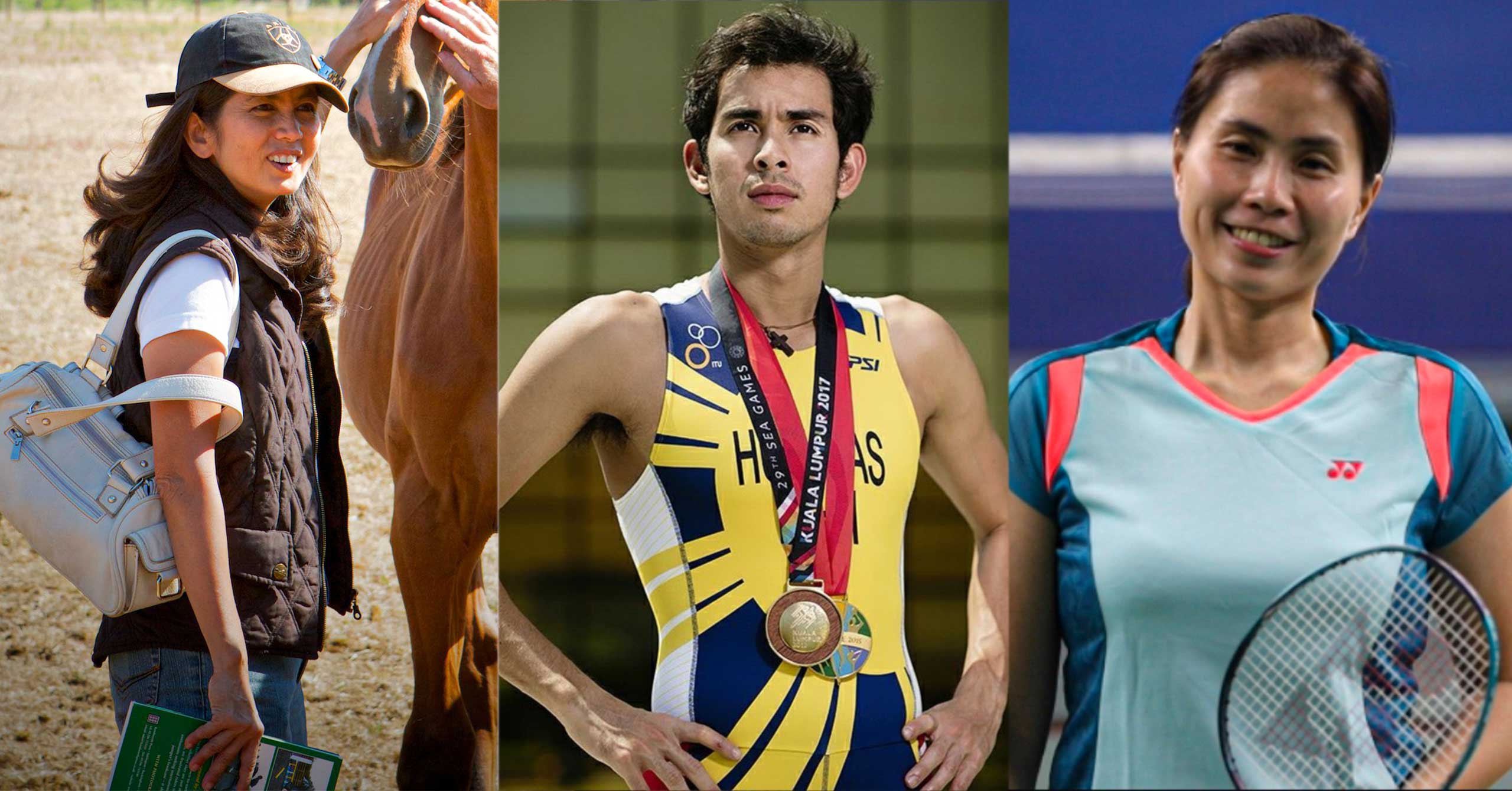Courtesy of Kennie Asuncion, Nikko Huelgas and Mia Virata
Courtesy of Nikko Huelgas
In “Passing The Torch,” Vogue Philippines discovers the stories of inspiring people who train, mentor, and shape athletes.
In sports, where passion meets precision, coaches and mentors hone an athlete’s skills, talent, character, and mindset. Whether it’s the high school coach who spends extra hours helping an athlete perfect their technique or the seasoned mentor who shares wisdom from years of experience, they are one of the pillars of an athlete’s strength. In moments of doubt, they become more than just a figure of authority; they transform into a guiding light, a source of encouragement, and sometimes even a surrogate parent.
Through “Passing The Torch,” Vogue Philippines celebrates the stories of coaches and mentors, as told by the people they’ve inspired. Below, read the stories of Mia Virata, Nikko Huelgas, and Kennie Asuncion, who are changing the game in Philippine sports.
Mia Virata, nominated by Daniella Virata
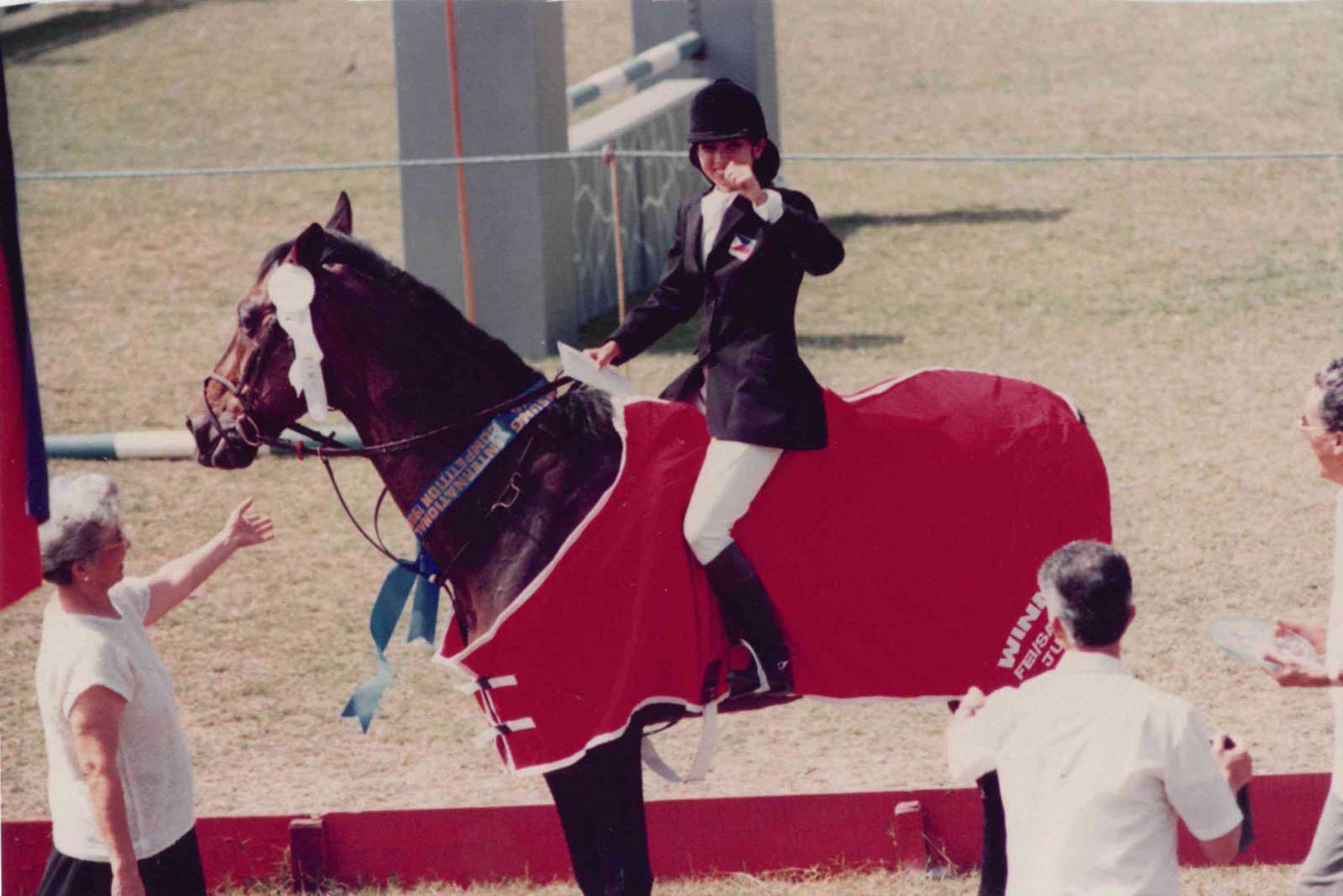
When Mia Virata was three years old, she sat on her first pony during a family vacation in Baguio. “I was always fond of animals,” she shares. And as she began her riding lessons, she grew even more fond of horses. “To have a connection with the horses, to feel that you’re one and you’re bonded as a team competing together, that’s not so easy to achieve,” she says. “It’s really nice when you feel at one with the horse.”
On horses, she traversed the globe, representing the Philippines in international competitions and developing her skills as an athlete and instructor. In England, she obtained her teaching certificate from the British Horse Society. In New Delhi, India, she competed in a three-day event with the Philippine team. Together with her husband, Steven, they brought home a bronze medal awarded by former prime minister Indira Gandhi. In 1983, she won a silver medal for combined training (dressage and showjumping) in Singapore at the Southeast Asian Games.
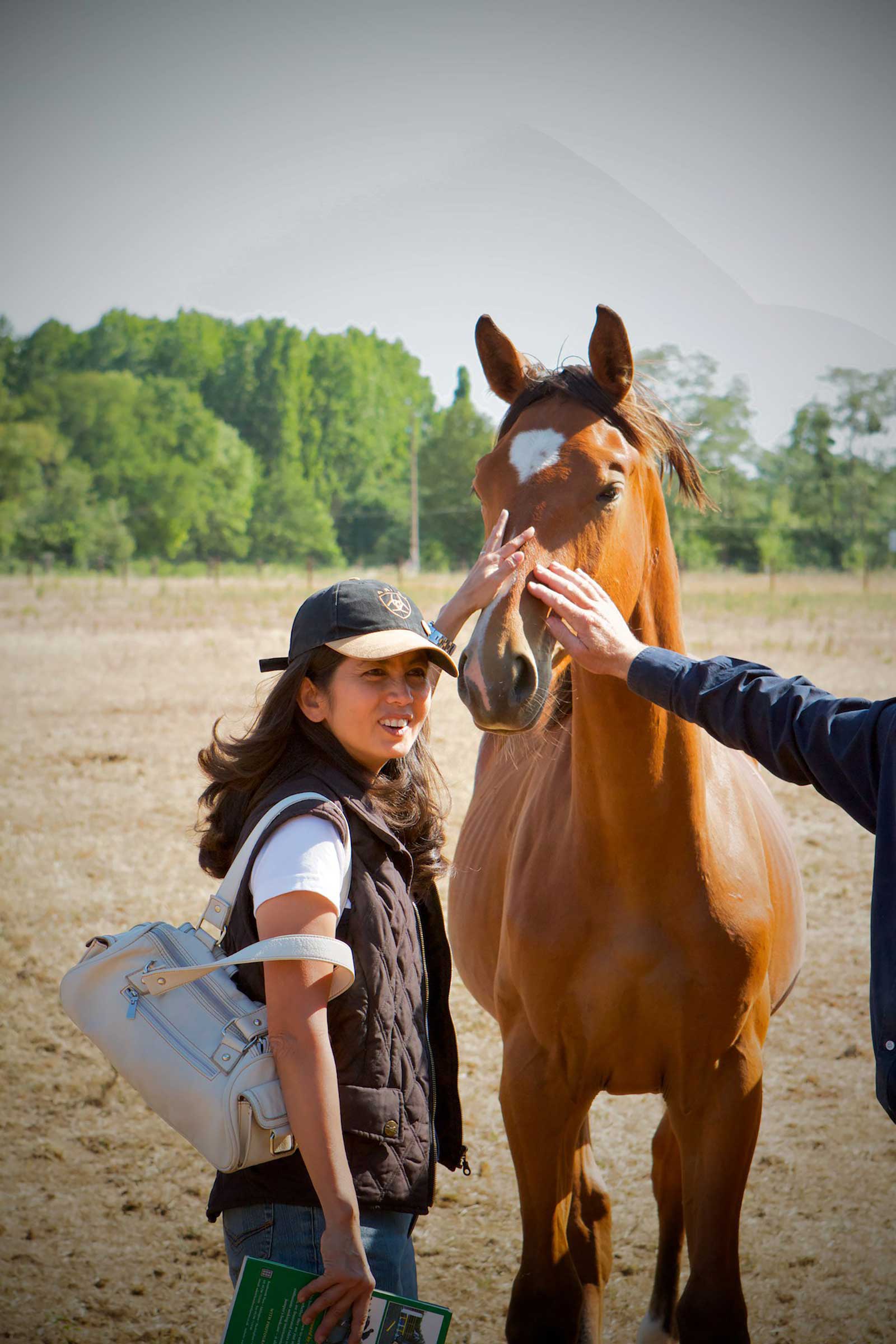
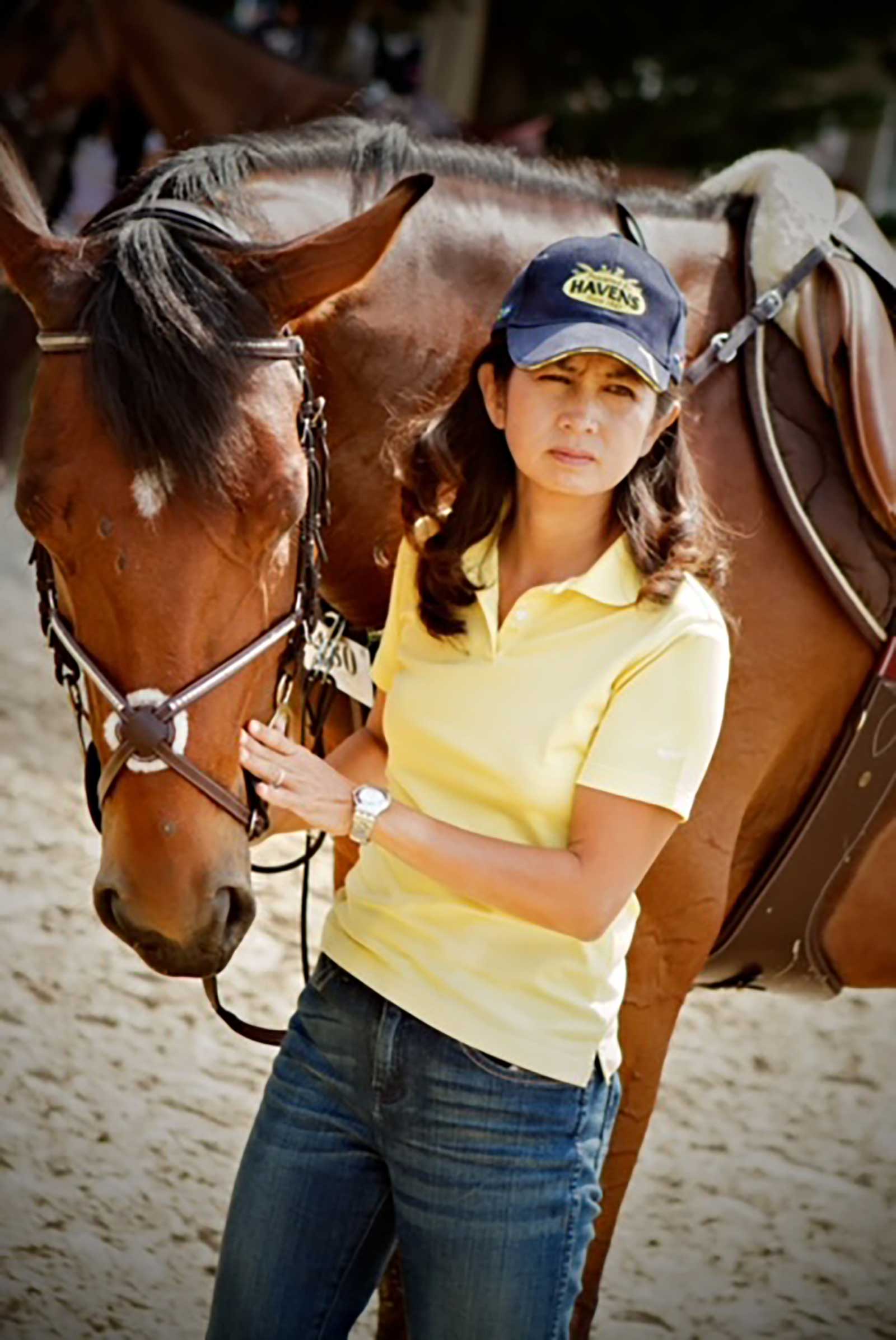
Now, she is handing the reins over to the next generation of riders, including her children Daniella, Xavier, and Diego. During the pandemic, Mia opened her own riding school, Rancho Leonor, in Silang, Cavite, where she makes riding more accessible by making the sport more affordable. “There are not that many places to ride, so it’s very limiting. But now we’re developing a new base,” she says.
“Without Mia’s hard work, discernment, and dedication to the equestrian sport, the riding community might have been smaller than it is today,” Daniella says. “Growing the sport takes time,” Mia says. And as it grows, she invites you to “come and try it out.”
Nikko Huelgas, nominated by Nicole Andaya
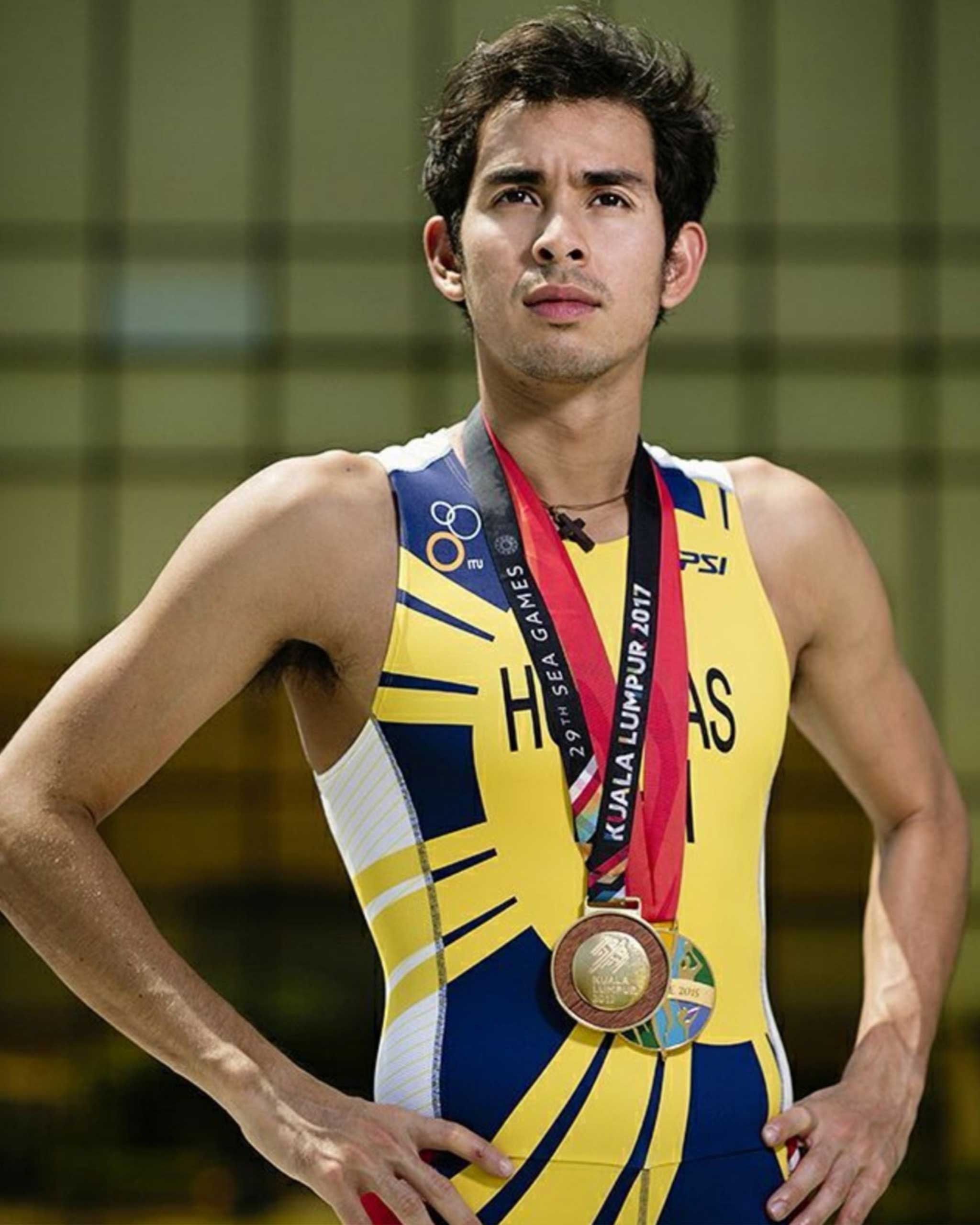
At 14 years old, Nikko Huelgas knew exactly what he wanted: to become a national athlete for the Philippines. The dream began when the Philippines hosted the 2005 Southeast Asian Games. “It was a knight in shining armor type of thing for me to see national athletes representing the country,” he says. Ten years later, he became the first SEA Games gold medalist in triathlon.
Having achieved the dream, Nikko went on to support other athletes’ dreams. As the former team captain and chair of the Philippine Olympic Committee Athlete’s Commission, he became one of the voices of national athletes to the Olympic Committee and Board Members. “It was a deeper purpose to give back to the sport that made me who I am today, to the sport that gave me all the opportunities for a better life that I have now,” he says. Currently, he serves on the board of Triathlon PH and manages POC’s NSA affairs and marketing.
For those who aspire to become mentors, Nikko advises beginning with developing oneself. “You can’t give something you don’t have,” he says. “Help yourself get to your full potential as an athlete or as a human being, with whatever talents you have.” As for athletes, he reminds them that the true victory in sports isn’t the medals, trophies, or podiums. “It is the becoming of you that will be the most important thing,” he says.
Kennie Asuncion, nominated by Jinky
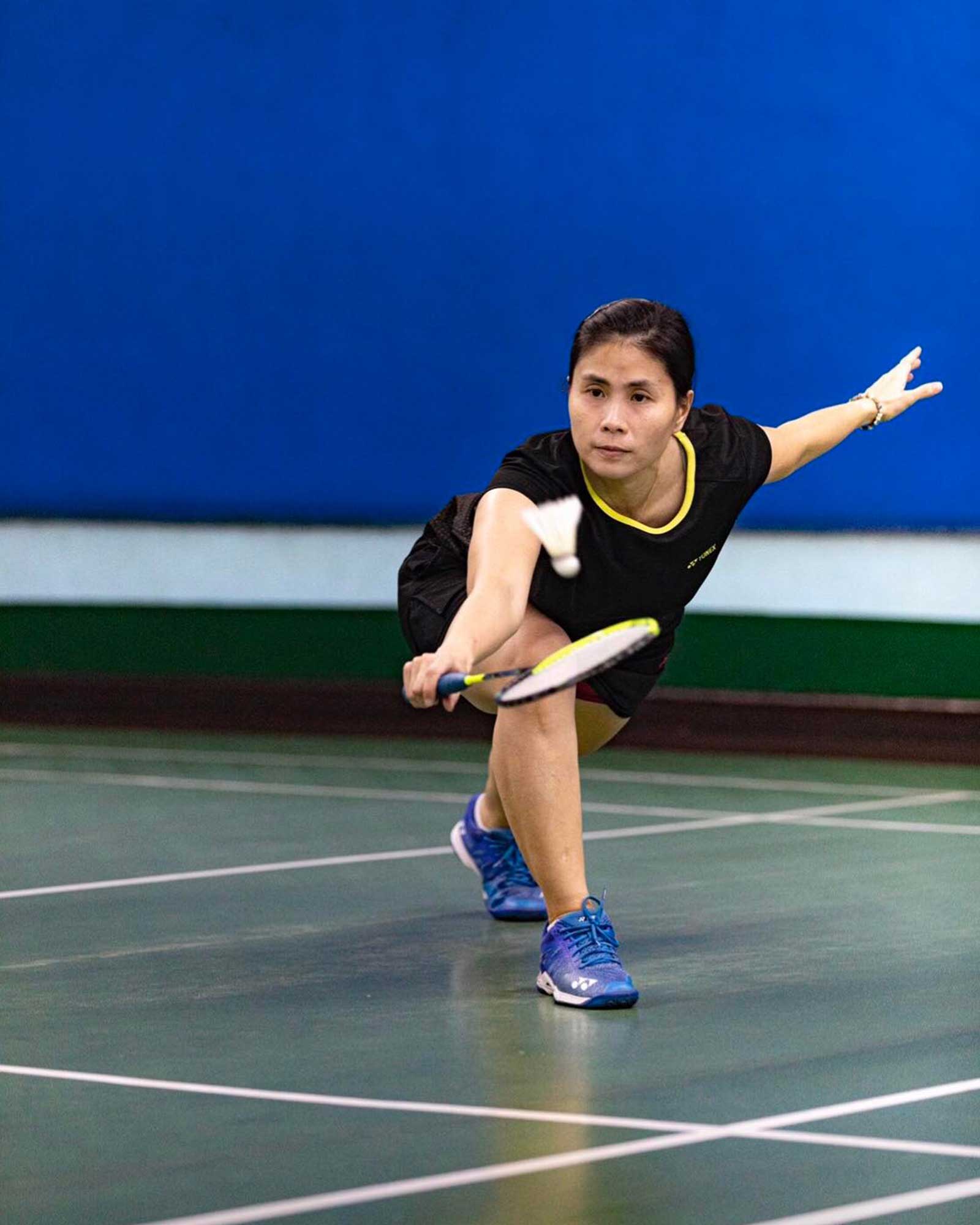
As a child, Kennie Asuncion watched her father, Nelson, play as a national athlete for the Philippine badminton team during the 1970s and 1980s. “At the time, he would go for competitions like the Southeast Asian Games, and my mom and I would tag along because I was very sickly back then,” she says. And although her father never asked them to follow in his footsteps, Kennie found herself on the same path.
As an athlete, she formerly ranked 11th internationally alongside her brother Kennevic as a mixed doubles pair. On the side, they also began coaching fellow athletes alongside their father. At present, she holds multiple roles, including program director of the national team and head coach for various teams and educational institutions.
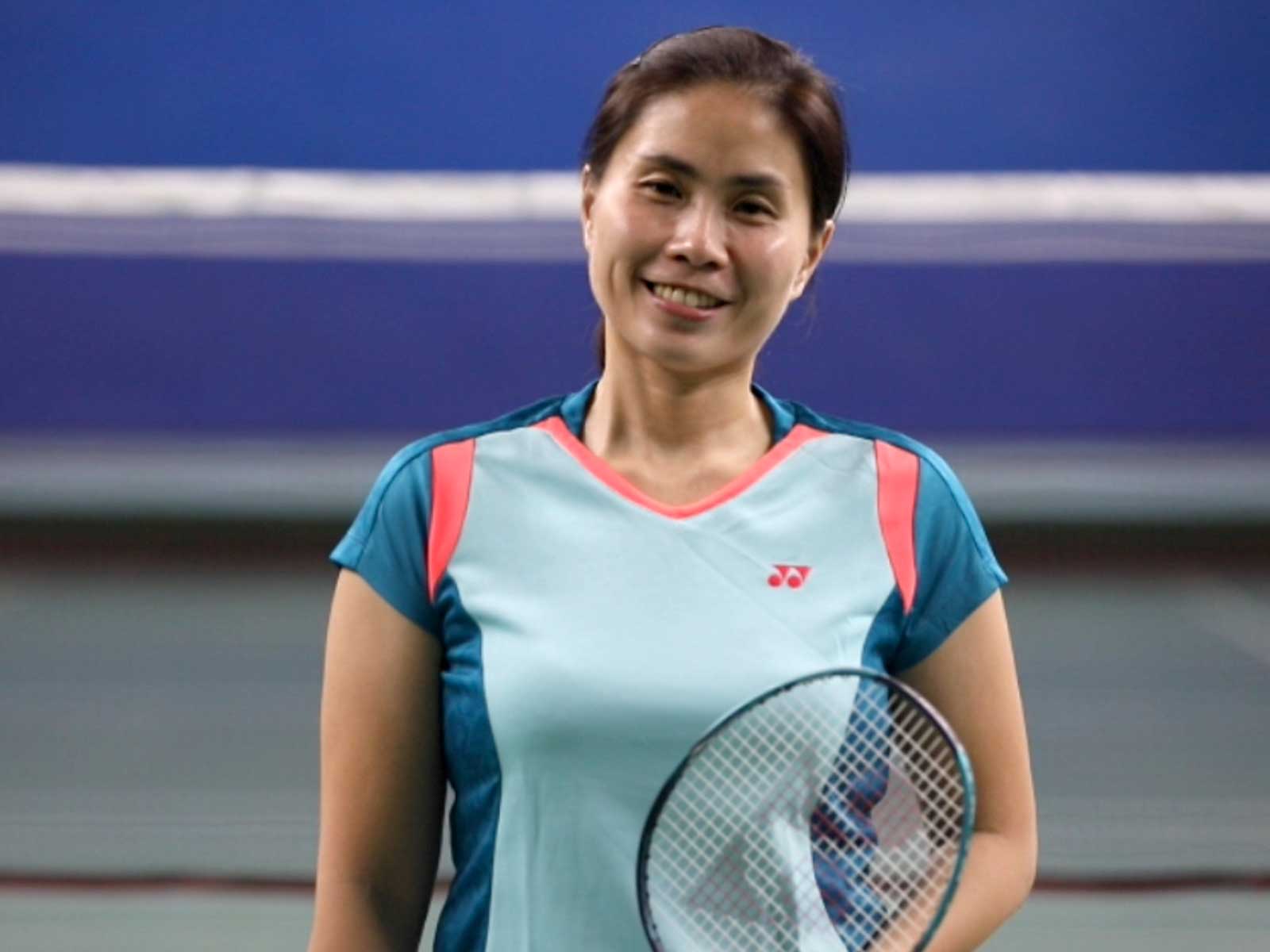
“Badminton is a combination of the physical, mental, and emotional strength of a player,” she says. As such, she makes sure that she knows her athletes. “I make sure that I have personal knowledge of who they are, where they’re at, and what their goals are, because that’s the only way to be successful,” she says. “You cannot put a program that’s a one-size-fits-all thing because it doesn’t work that way.”
Though each training program is different for each athlete, the cornerstone of Kennie’s coaching philosophy is one from her father. “He always reminded us that when the time comes that you feel like you know it all, that’s your downfall because nobody really knows it all,” she says. “Enjoy the game as much as you can, and always be open to learning.”
